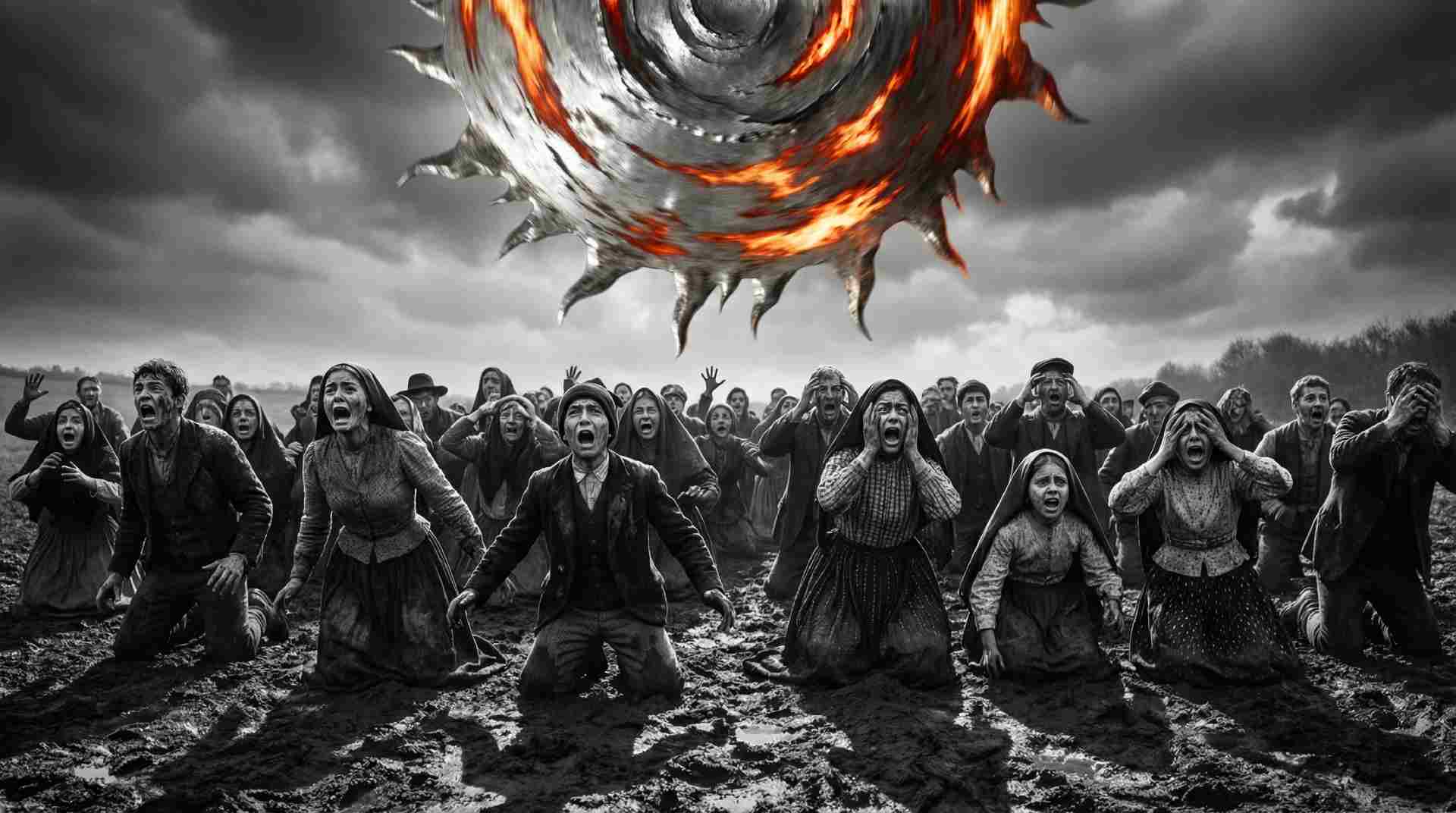True crime is like a magnet for many people. It’s strange how stories about real-life mysteries and crimes can draw us in. Whether it’s a missing person, a serial killer, or a historical mystery, these tales grab our attention and make us think. Maybe it’s because they show us a side of life that’s dark and hidden, or maybe it’s the thrill of the unknown. Whatever it is, true crime has a way of sticking with us long after we hear the story.
Key Takeaways
- True crime stories captivate audiences by exploring real-life mysteries and criminal acts.
- The genre often delves into the psychological aspects of criminals and their motivations.
- True crime has become a significant part of popular culture, influencing books, movies, and podcasts.
- Ethical concerns arise in true crime storytelling, especially regarding the portrayal of victims.
- True crime narratives can impact society’s perception of crime and justice.
The Enigmatic Allure of True Crime

True crime has a way of pulling us in, doesn’t it? It’s like a puzzle that we just can’t resist, a mystery begging to be solved. But what exactly makes these stories so captivating? Let’s explore this intriguing world.
Unraveling the Mysteries of Infamous Cases
True crime stories often revolve around the most infamous cases that have baffled investigators and the public alike. From the unsolved mysteries of Jimmy Hoffa’s disappearance to chilling tales of serial killers, these stories offer a peek into the darkest corners of human nature. They present a narrative where every detail matters, and every clue could be the key to unlocking the truth. It’s this complexity and the thrill of uncovering secrets that keep us hooked.
The Psychology Behind Our Fascination
Why are we so drawn to these stories? Some say it’s because they allow us to explore the boundaries of morality and justice from a safe distance. True crime provides a glimpse into the minds of those who commit unimaginable acts, letting us ponder the "why" behind their actions. This curiosity about human behavior and the desire to understand what drives someone to crime is a big part of the genre’s appeal.
True Crime in Popular Culture
The impact of true crime on popular culture is undeniable. From podcasts to documentaries, these stories are everywhere. Platforms like Netflix have brought true crime into the mainstream, making it accessible to millions. The genre has even influenced public perception of the legal system, sparking conversations about justice and ethics. It’s fascinating how these narratives shape our understanding of crime and its consequences.
True crime challenges us to confront the uncomfortable truths about our world. It reflects our fascination with the macabre and our desire to understand the inexplicable. As we delve into these stories, we’re not just seeking entertainment; we’re searching for answers to questions that have haunted humanity for ages.
Chilling Tales from the Shadows

The Haunting Disappearance of Jimmy Hoffa
Jimmy Hoffa’s disappearance is one of the most infamous cases in American history. On a warm July day in 1975, the former Teamsters president vanished without a trace. Despite countless investigations, his fate remains a mystery, fueling endless speculation and conspiracy theories. Some believe he was buried under Giants Stadium, while others suggest he was incinerated in a mob-owned crematorium. The truth, however, continues to elude us.
The Hexham Heads: A Paranormal Enigma
In the quiet town of Hexham, England, two stone heads were unearthed in a garden in 1971. These seemingly innocuous artifacts were soon linked to a series of bizarre incidents, including poltergeist activity and sightings of a spectral wolf-like creature. The legend of the Hexham Heads has intrigued paranormal enthusiasts and skeptics alike, leaving many to wonder about the true nature of these mysterious stones.
Unsolved Mysteries That Defy Explanation
The world is filled with mysteries that defy logical explanation. From the eerie lights of Marfa, Texas, to the chilling sounds of the "Bloop" in the Pacific Ocean, these phenomena captivate and mystify. Here’s a list of some of the most baffling unsolved mysteries:
- The Voynich Manuscript: An ancient book filled with unknown writings and drawings, its purpose and origin remain unknown.
- The Taos Hum: A low-frequency hum heard by residents in Taos, New Mexico, that has no identifiable source.
- The Dyatlov Pass Incident: A group of experienced hikers found dead under mysterious circumstances in the Ural Mountains.
In the shadows of our world, these tales linger, whispering of secrets yet to be uncovered. They remind us that not all stories have endings, and some questions may never find answers.
The Dark Side of Humanity

Notorious Serial Killers and Their Legacies
Serial killers have always fascinated and terrified us in equal measure. These individuals, often driven by a mix of psychological issues and personal vendettas, leave behind a chilling legacy of fear and intrigue. Names like Ted Bundy, Jeffrey Dahmer, and Aileen Wuornos have become synonymous with horror. Their stories, filled with gruesome details, continue to captivate audiences, offering a glimpse into the darkest corners of the human psyche.
- Ted Bundy: Known for his charm and intelligence, Bundy confessed to 30 homicides across several states. His ability to blend in with society while committing heinous acts highlights the duality of human nature.
- Jeffrey Dahmer: Dubbed the "Milwaukee Cannibal," Dahmer’s crimes included murder, dismemberment, and cannibalism. His case raised questions about the effectiveness of the criminal justice system in identifying and stopping such predators.
- Aileen Wuornos: Often portrayed as a victim of circumstance, Wuornos’ story is complex, involving themes of abuse and survival. Her life and crimes have been the subject of numerous films and documentaries.
Crimes of Passion: When Love Turns Deadly
Love can be a powerful motivator, sometimes leading people down dark paths. Crimes of passion occur when emotions run high, resulting in acts of violence that are often spontaneous and unplanned. These crimes remind us of the thin line between love and hate, and how quickly one can turn into the other.
- Jealousy: Often cited as a reason for crimes of passion, jealousy can drive individuals to commit unthinkable acts against those they claim to love.
- Betrayal: Discovering infidelity or deceit can lead to explosive confrontations, sometimes ending in tragedy.
- Possession: The desire to control or own another person can result in fatal outcomes when that control is threatened.
The Role of the Media in True Crime Narratives
The media plays a significant role in shaping our perception of true crime. From sensational headlines to in-depth documentaries, the way stories are presented can influence public opinion and even impact legal proceedings. The rise of true crime podcasts and series has only amplified this effect, creating a culture where crime is both entertainment and education.
- Sensationalism: Media outlets often focus on the most shocking aspects of a crime, sometimes at the expense of accuracy or sensitivity.
- Public Perception: How a case is portrayed can sway public opinion, affecting everything from jury selection to sentencing.
- Ethical Dilemmas: Balancing the public’s right to know with the privacy of those involved is a constant challenge for journalists and producers.
The dark side of humanity is a complex tapestry woven from threads of fear, fascination, and moral ambiguity. As we explore these chilling tales, we are reminded of our own vulnerabilities and the thin veneer of civility that separates us from chaos.
True Crime and the Supernatural
Real-Life Encounters with the Unexplained
In the shadowy corners of our world, tales of unexplained encounters with the supernatural have both terrified and fascinated us. These stories often blur the line between reality and imagination, leaving us to wonder what truly lies beyond the veil. From ghostly apparitions in haunted houses to eerie sounds that defy explanation, these encounters challenge our understanding of the natural world.
The Intersection of True Crime and Urban Legends
Urban legends often serve as cautionary tales, but some are rooted in real-life events that are as chilling as any fiction. The intersection of true crime and urban legends is a fascinating topic, where stories of notorious criminals and mysterious happenings intertwine. These legends, passed down through generations, become part of our cultural fabric, reflecting our deepest fears and curiosities.
Paranormal Investigations into True Crime
Paranormal investigators often find themselves drawn to crime scenes where the unexplained lingers. These investigations seek to uncover the truth behind ghostly presences or inexplicable phenomena associated with certain crimes. Could these spirits be trying to communicate, or are they mere echoes of a violent past? The answers remain elusive, yet the quest for understanding continues to captivate those who dare to explore the unknown.
"In a world filled with mysteries, the allure of the supernatural and its connection to true crime is a reminder of the thin line between reality and the unknown."
The Ethical Dilemmas of True Crime Storytelling
Balancing Truth and Sensationalism
True crime stories often walk a tightrope between delivering factual accounts and sensationalizing events for dramatic effect. The line between engaging storytelling and exploitation is thin, and it’s easy to cross. Storytellers must decide how much to reveal, especially when dealing with gruesome details that might attract viewers but also risk disrespecting the victims and their families. The challenge is to maintain integrity while keeping the audience hooked.
The Impact on Victims and Their Families
The ripple effects of true crime narratives can be profound. Families of victims often relive their trauma through media portrayals, which can sometimes be insensitive or inaccurate. The constant retelling of painful events can hinder their healing process. It’s crucial for creators to consider the emotional toll on those left behind and to approach each story with empathy and respect.
The Responsibility of Storytellers
As creators of true crime content, there’s a responsibility to present stories ethically. This involves thorough research and a commitment to accuracy. Misrepresentation or dramatization can lead to misinformation, affecting public perception and potentially influencing ongoing legal cases. Storytellers must weigh their responsibility to the truth against the lure of captivating narratives.
"We’re not here to judge, but to seek the truth. The connections between media and crime are complex, layered, and deserve a closer look."
In the end, ethical storytelling in true crime isn’t just about telling a good story—it’s about honoring the real people involved and understanding the broader impact of these narratives on society. As discussed in the ethics of true crime documentaries, creators must navigate these waters carefully, ensuring their work respects both the subjects and the audience.
True Crime’s Influence on Society

How True Crime Shapes Public Perception
True crime stories have an uncanny ability to shape the way we see the world. These narratives often highlight the most chilling aspects of human behavior, making us question the safety of our surroundings and the nature of justice. When you watch a documentary or read about a notorious case, it can create a sense of paranoia, making the world seem more dangerous than it might actually be. This genre taps into our primal fears, feeding our fascination with the macabre. It’s not just about the crimes themselves but the human stories behind them that captivate us.
The Rise of True Crime Documentaries
In recent years, true crime documentaries have exploded in popularity. Platforms like Netflix have become hubs for these gripping tales, offering an array of stories that range from unsolved mysteries to high-profile trials. This surge in interest has not only captivated audiences but also influenced the way stories are told. Filmmakers are now blending investigative journalism with cinematic storytelling, creating a hybrid genre that’s both informative and entertaining. The rise of these documentaries also raises ethical questions about the portrayal of real-life tragedies for entertainment.
The Cultural Impact of True Crime Stories
True crime stories have seeped into our cultural consciousness, influencing everything from television shows to podcasts. They reflect societal fears and anxieties, often mirroring the issues we face in real life. Whether it’s a fascination with serial killers or the intrigue of unsolved mysteries, these stories spark conversations about morality, justice, and human nature. As these narratives become more mainstream, they continue to shape public perception, influencing how we think about crime and punishment. Ultimately, true crime’s impact on society is profound, affecting how we consume media and perceive the world around us.
The world of true crime is a mirror reflecting our deepest fears and curiosities, challenging us to confront the darkness within and around us.
True crime stories have a big impact on how we see the world. They make us think about safety, justice, and the choices people make. If you’re curious about these topics and want to learn more, visit our website for exciting articles and resources that dive deeper into the world of true crime. Don’t miss out on the chance to explore these fascinating insights!
Conclusion
True crime stories have a way of pulling us in, making us question the world around us. They’re like a puzzle, each piece revealing a bit more of the picture, yet leaving us with more questions than answers. As we explore these tales, we find ourselves drawn to the mystery and the unknown, captivated by the stories of those who lived through them. Whether it’s the chilling disappearance of Jimmy Hoffa or the eerie events surrounding the Hexham Heads, these stories linger in our minds, haunting us long after we’ve turned the last page. In the end, true crime isn’t just about the crime itself, but about the human stories behind them, the lives touched, and the mysteries that remain unsolved. It’s a journey into the shadows, where the line between truth and fiction blurs, leaving us to wonder what really lies beneath the surface.
Frequently Asked Questions
What makes true crime stories so interesting?
True crime stories are interesting because they explore real-life mysteries and the darker side of human nature. People are curious about why crimes happen and how they are solved.
Why are some crime cases never solved?
Some crime cases remain unsolved due to a lack of evidence, witnesses, or leads. Over time, evidence can be lost, and witnesses may forget details, making it hard to solve the case.
How does true crime affect the families of victims?
True crime stories can be hard for victims’ families because they bring back painful memories. However, they can also raise awareness and sometimes lead to new information that helps solve cases.
Are true crime documentaries always accurate?
Not always. True crime documentaries try to be accurate, but sometimes they focus more on making the story exciting. It’s important to check facts from multiple sources.
What is the role of the media in true crime?
The media plays a big role in true crime by reporting on cases, which can help solve them by reaching a wider audience. However, media coverage can sometimes be sensationalized.
Can true crime stories help prevent future crimes?
Yes, true crime stories can help prevent future crimes by educating people about warning signs and encouraging them to be more aware of their surroundings.




